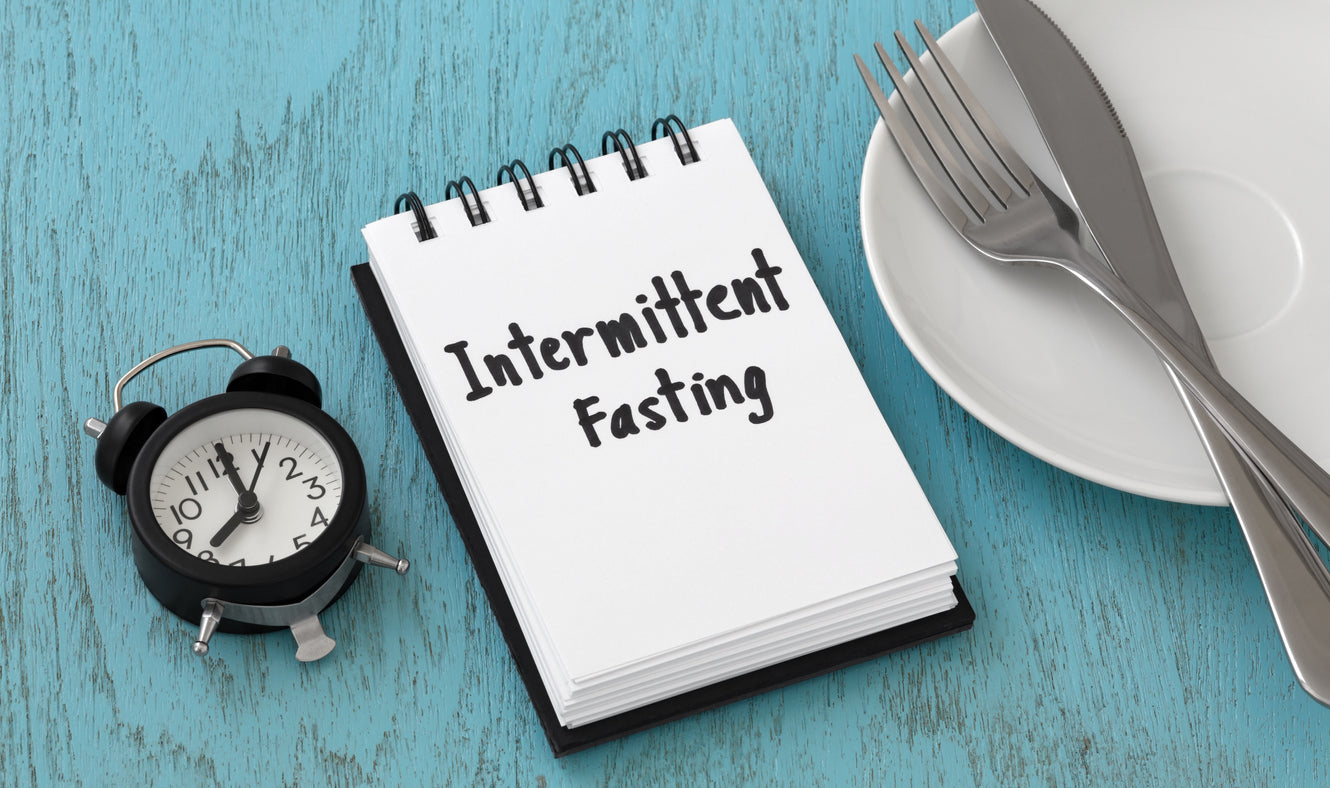What Is Intermittent Fasting?

Intermittent fasting, or IF, is an eating pattern that switches between periods of fasting and eating. It’s not like a diet where you have to focus on what foods you should and shouldn’t eat. Instead, it’s about when you should eat.
Intermittent fasting is extremely popular in the health and fitness community. Common IF methods involve daily 16-hour fasts or fasting for 24-hours two times a week. This fasting method is used for weight loss, improving general health and wellness, and simplifying lifestyles.
How Does Intermittent Fasting Work?
A lot of people ask, “how does intermittent fasting work?” There are several methods or ways of practicing intermittent fasting.
All of them involve splitting the day or week into eating and fasting periods. While fasting, you either eat very little or nothing at all. Let’s look at the current practices.
- Intermittent Fasting 16/8: The intermittent 16/8 method is also known as the Leangains protocol. How this method works is , you skip breakfast and restrict the daily eating period to 8-hours. An example would be, you can eat between 1-9 pm and then fast for the 16 hours in between.
- Eat-Stop-Eat Method: This fasting method is pretty simple, you fast for 24-hours once or twice a week.
- The 5:2 Method: The 5:2 method consists of only eating a combined total of 500 to 600 calories on two days of the week, and for the other five days of the week, you would eat normally. You don’t want the two days of fasting to be back-to-back!
The Benefits of Intermittent Fasting
When a person fasts, several things happen in the body. The human body naturally adjusts hormone levels to make the stored body fat more accessible. The body’s cells also engage essential repair processes.
Intermittent fasting can be a powerful weight-loss tool. It can lead to an automatic reduction in caloric intake. The changes in hormone levels help the weight-loss process. The metabolism gets a slight boost which also helps prevent weight-gain and encourages weight-loss.
Let’s look at some of the other health benefits!
- Helps build up an insulin resistance
- Eases inflammation
- Improves heart health
- Provides cancer prevention
- Boosts brain health
- Anti-aging benefits
Research shows us that correctly practicing intermittent fasting, whether 16/8 or any other method, provides some really great health benefits. Intermittent fasting or metabolic switching triggers the body to change its energy source from glucose stored in the liver (fat) with ketones.
The increase of ketones in our bloodstream is called Ketogenesis. Ketogenesis triggers activity in several of our cellular signaling pathways that influence and affect our health and aging. Our defense system gets an incredible boost, and our overall health improves!
Is Intermittent Fasting For Everyone
Unfortunately, intermittent fasting isn’t the best idea, nor is it safe for everyone. Fasting can cause adverse effects for people with preexisting health issues. Before starting any new diet, including intermittent fasting, please speak to a doctor or health professional to be sure it’s the safest and best decision for you.
If you have had any of the following issues please reach out to a medical professional before fasting.
Intermittent fasting can truly be a health benefit. Make sure you do your research before jumping into this sort of thing; you have to make sure that what you’re doing to your body is going to cause positive effects without negative repercussions!





